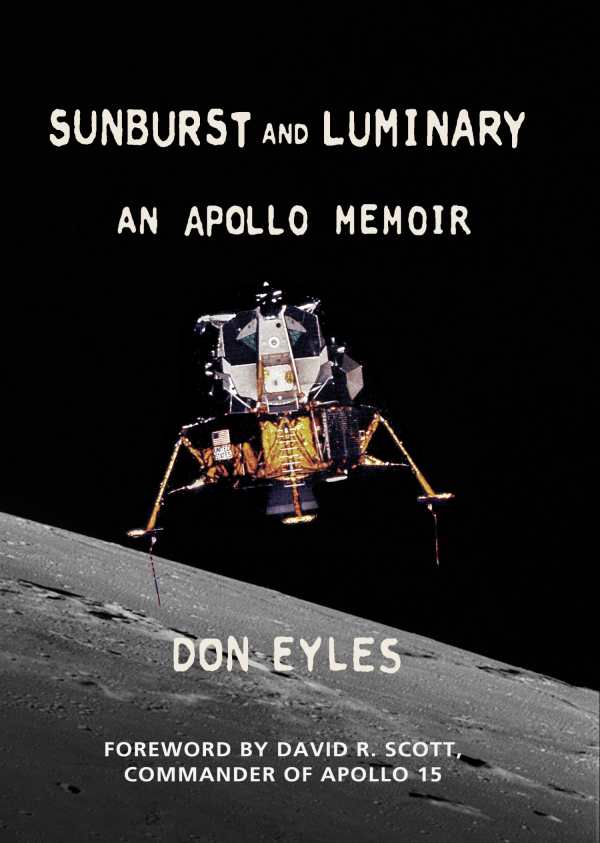Sunburst and Luminary
An Apollo Memoir
The history of NASA hinged on a set of predetermined intervals; two seconds were everything. So shows Don Eyles in Sunburst and Luminary, his account of helping design the guidance systems that led Apollo missions to their successes.
Eyles’s early life is captured in strung-together snippets from his Southern boyhood, filtered through a humid haze. His early fascination with space flight left him primed to answer John F. Kennedy’s call to put a man on the moon.
Throughout the text, the accidental engineer troubles his way through landing equations and early computer technology with the same curiosity that he displays as he tumbles his way into adulthood—and with the same bemusement at incidental developments.
Movie images of buttoned-up NASA workers in sterile environments disappear before the trial-and-error atmosphere of Eyles’s Cambridge experiences, with the result that the Apollo missions come to seem all the more miraculous for the precarious, inventive nature of their developments.
Eyles’s explanations of working toward effective space flight navigation are, to some degree, an exercise in insider’s baseball, but his enthusiasm is infectious nonetheless. Lines like “Never mind the expansion of the universe and the swirling of galaxies. The stars are plenty stable enough for going to the moon” are well worth pushing through semi-dry and complex paragraphs regarding coding for.
Bits of the 1960s peer through between programming jaunts—the Velvet Underground in a Boston club; Red Sox wins; antiwar demonstrations—but the moon missions are always at the fore. They progress thanks to the concerted efforts of teams dedicated to minutiae and perfection whose accomplishments are preserved in a way well worth celebrating.
Sunburst and Luminary is an important, detailed insider’s account of NASA’s early missions to the moon.
Reviewed by
Michelle Anne Schingler
Disclosure: This article is not an endorsement, but a review. The publisher of this book provided free copies of the book to have their book reviewed by a professional reviewer. No fee was paid by the publisher for this review. Foreword Reviews only recommends books that we love. Foreword Magazine, Inc. is disclosing this in accordance with the Federal Trade Commission’s 16 CFR, Part 255.

